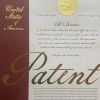- 1-Understanding-Traffic-Violations-and-the-Need-for-Legal-Assistance
- 2-Benefits-of-Hiring-a-Specialized-Traffic-Lawyer
- 3-Key-Criteria-for-Finding-the-Right-Attorney
- 4-Researching-and-Vetting-Potential-Lawyers
- 5-Real-World-Case-Study-Success-Story
- 6-Making-Your-Final-Selection-and-Next-Steps
Understanding Traffic Violations and the Need for Legal Assistance
Traffic violations range from minor infractions like parking tickets and speeding to major offenses such as DUI (driving under the influence) and reckless driving. While a simple speeding ticket may seem inconsequential, even minor citations can carry fines, points on your license, and increased insurance premiums. More serious charges—DUI or reckless operation—carry the risk of license suspension, mandatory driving courses, or even jail time. Given the potential impact on your driving record and personal freedom, finding a good lawyer for traffic violations becomes essential to protect your rights and minimize long-term consequences.
The legal system governing traffic court is complex: each jurisdiction has its own rules of evidence, procedural deadlines, and plea-bargaining practices. Court clerks cannot offer legal advice, and self-representation often leads to missed opportunities for reduction or dismissal of charges. An experienced attorney understands local court culture, knows which judges may be amenable to negotiations, and can identify procedural errors that could lead to case dismissal. By recognizing the stakes—financial costs, insurance hikes, and personal stress—you can appreciate why investing time in finding a good lawyer for traffic violations is a critical first step toward a positive outcome.
Benefits of Hiring a Specialized Traffic Lawyer
Specialized traffic lawyers bring targeted expertise. Unlike general practitioners, they focus their practice on traffic court representation, accumulating experience with speeding ticket defenses, DUI field-sobriety test challenges, and license reinstatement proceedings. This depth of knowledge translates into better negotiation leverage and more creative defense strategies. For instance, a lawyer familiar with calibration requirements can argue that improperly maintained radar equipment invalidates a speeding ticket, potentially securing a dismissal.
Beyond courtroom tactics, hiring a specialized traffic ticket attorney simplifies the process for you. Your lawyer handles paperwork, court appearances, and correspondence with prosecutors—allowing you to maintain your schedule without missing work or incurring additional stress. Some attorneys offer representation statewide, covering multiple court dates and filing motions to reduce or waive fines. This comprehensive service package underscores why finding a good lawyer for traffic violations pays dividends: you gain peace of mind, efficient case management, and often a reduction in penalties.
Key Criteria for Finding the Right Attorney
When searching for a traffic attorney, prioritize these attributes: experience, track record, communication style, fee structure, and local standing. First, examine years of practice focused on traffic law and the number of successfully resolved cases. A lawyer who has negotiated hundreds of speeding-ticket reductions or DUI dismissals likely possesses refined tactics. Second, request client references or read online reviews—pay attention to recurring themes like promptness, transparency, and courtroom confidence.
Communication is equally important. Your lawyer should explain legal concepts in plain language, set realistic expectations, and provide timely updates. Beware of attorneys who promise guaranteed dismissals—no lawyer can control a judge’s decision. Instead, look for professionals who outline potential outcomes clearly. Fee structures vary: some charge flat rates for misdemeanor traffic tickets, while DUI cases often involve hourly billing. Always obtain a written fee agreement detailing what services are included and any extra costs, such as expert witness fees or filing fees. Finally, assess the attorney’s rapport with local prosecutors and judges. Lawyers who have built professional relationships within the jurisdiction often secure favorable plea deals more efficiently.
Researching and Vetting Potential Lawyers
Start by compiling a shortlist of attorneys through referrals from friends, family, or colleagues who have faced similar charges. Online directories and legal-aid helplines can also provide candidates. For each attorney, visit their website to review credentials, bar certifications, and case summaries. Look for membership in professional associations such as the National Traffic Law Center or state trial lawyer organizations, which signal ongoing commitment to specialized education.
Next, schedule initial consultations—many traffic lawyers offer free or low-cost case reviews. Prepare questions: “How many traffic violation cases have you handled this year?”, “What percentage resulted in dismissal or reduction?”, and “What is your approach to challenging DUI field-sobriety tests?” Evaluate their responsiveness and willingness to address concerns. A transparent lawyer will explain possible defenses—challenging the officer’s observations, questioning calibration logs, or negotiating community service in lieu of fines. After consultations, compare notes on expertise, fees, and personal comfort level before making your selection.
Real-World Case Study & Success Story
Consider the case of John, a sales manager pulled over for alleged 75 mph in a 55 mph zone. Facing a fine of over $300, five points on his license, and a mandatory hearing, John engaged a specialized traffic lawyer. The attorney reviewed the police radar certification logs and discovered the device had missed its annual inspection date by two months—rendering its readings legally questionable. At the hearing, the lawyer argued procedural non-compliance and cross-examined the officer on calibration protocols. The judge dismissed the speeding citation on technical grounds, saving John significant costs and preserving his clean driving record.
In another example, Maria faced a first-time DUI charge after failing a field-sobriety test. Her attorney consulted a forensic toxicologist, whose report highlighted environmental factors—uneven pavement and poor lighting—that could skew test results. With expert testimony and strategic cross-examination, the prosecutor offered a plea to a reduced reckless driving count, eliminating the DUI conviction from Maria’s record. These stories illustrate how finding a good lawyer for traffic violations—with specialized knowledge and resource networks—can transform daunting charges into manageable outcomes.
Making Your Final Selection and Next Steps
After thorough vetting, choose the attorney who best aligns with your case complexity, budget, and communication preferences. Request a written engagement letter outlining scope of work, fee structure, and estimated timeline. Provide all relevant documents—citation copy, police report, and any correspondence from the court—to expedite case preparation.
As you move forward, maintain open communication: inform your lawyer of any new developments and attend scheduled meetings punctually. When your case concludes, debrief with your attorney on lessons learned—such as avoiding certain driving behaviors or understanding local enforcement patterns. If you seek ongoing traffic-law support or referrals for related legal services, visit Fred Miller Lawyer, where expert attorneys specializing in traffic violations offer personalized consultations and flat-fee packages to fit your needs. By following these steps, you ensure that finding a good lawyer for traffic violations leads to the best possible defense and peace of mind.

 keystone law group p c
keystone law group p c khaliquelaw review
khaliquelaw review kyle fletcher attorney
kyle fletcher attorney anthem taxes reviews
anthem taxes reviews clark fountain attorneys
clark fountain attorneys cohen feeley
cohen feeley